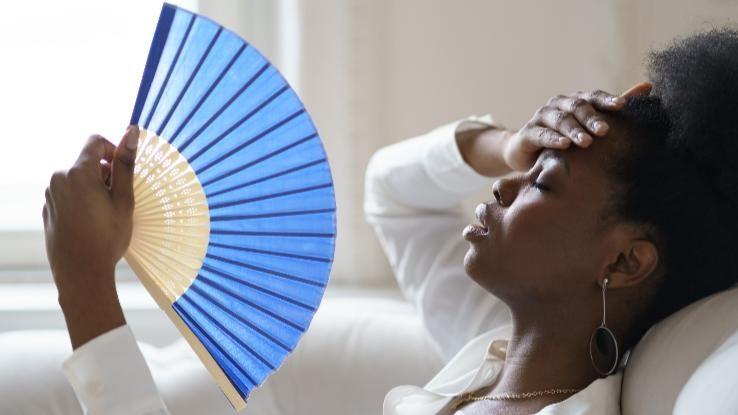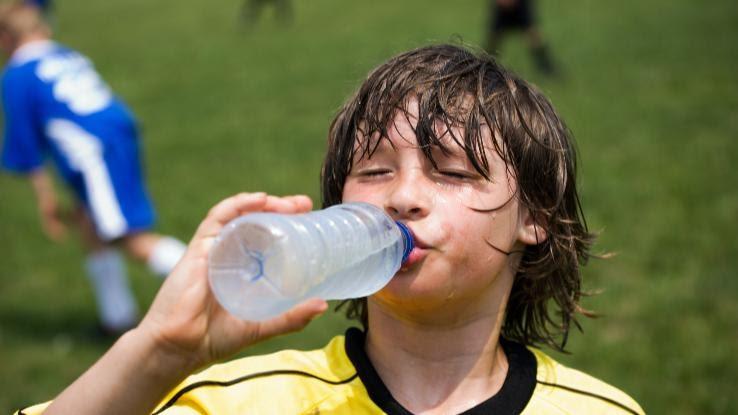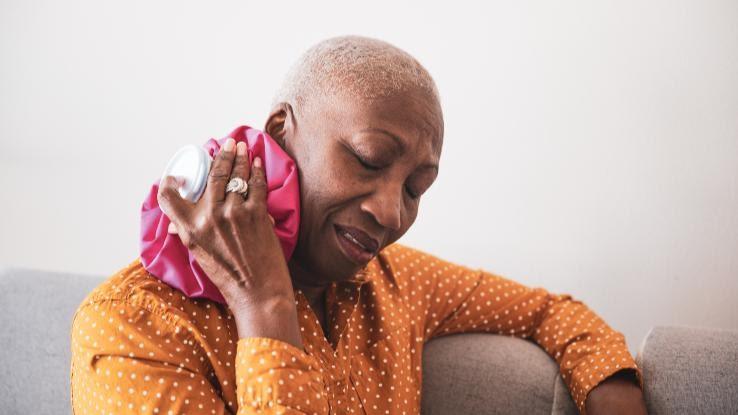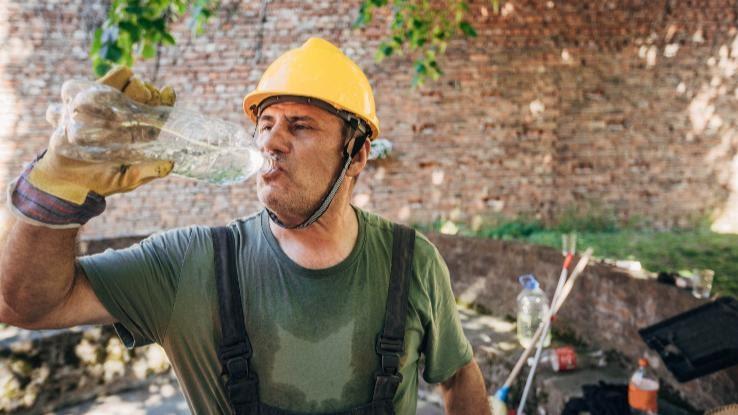
If you’ve ever experienced heat exhaustion firsthand, then we don’t have to tell you that it’s not fun — at all. Heat exhaustion occurs when your body overheats and isn’t able to able to cool itself down fast enough, thus resulting in a variety of symptoms, from vertigo to muscle cramps and headaches.
With summer spreading across the United States, many folks are staring down — or already experiencing — hot temps. So, with this in mind, we’re taking a look at the warning signs and symptoms associated with heat exhaustion, as well as the remedies that can come in handy if you’re experiencing it.
Beware These Common Signs of Heat Exhaustion
While heat exhaustion can happen to anyone, babies, small children, and older adults tend to be among the most susceptible. Perhaps unsurprisingly, people who exercise or work outdoors in hot weather are also among the most commonly affected.
Heat exhaustion tends to strike when you become overheated due to high temperatures such as those you might encounter during the height of summer. Humidity in conjunction with high temperatures can also increase the likelihood of contracting heat exhaustion, as can closed spaces such as a hot car with no air conditioning.

If you find yourself feeling a bit off after spending too much time in the heat, you should be looking out for common symptoms of heat exhaustion, which can include issues like:
- Nausea
- A weak, rapid pulse
- Feeling lightheaded or dizzy when you stand up after sitting for too long
- Vertigo or general dizziness
- Feeling like you might faint or pass out
- Getting goosebumps or cold skin even when you’re out in the heat
- Profuse sweating
- Headaches and/or muscle cramps
- Dehydration
Should you experience any of these symptoms after exposure to heat, it’s a good idea to move to a cooler environment and take remedial action immediately.
Try These Heat Exhaustion Remedies
If you think you may be experiencing heat exhaustion, it’s better to play it safe than sorry. When left untreated, heat exhaustion can get pretty serious — or can lead to even more dangerous conditions, such as heatstroke.
The first thing you should do if you start to feel symptoms like those listed above? Get to a cooler area as soon as possible — if that’s possible. Any air-conditioned area is optimal, but even moving to the shade can be helpful if it’s the best you can do. Next, make sure you drink plenty of water or a sports drink like Gatorade; the electrolytes in such drinks will help your body rehydrate as quickly as possible.

If you’re wearing layers or restrictive clothing, change into more loose-fitting clothing (or shorts and short sleeves) when possible. And if you’re in a space where you can use icepacks — or even towels soaked in wet water — then be sure to apply them to your forehead, wrists, under your arms, and the back of your neck to help bring your body temperature down.
When heat exhaustion strikes at work, it’s worth asking your boss to leave early or take the day off, especially if you work outdoors. After all, simply “powering through” a spell of heat exhaustion might just worsen your symptoms, causing you to take off far more time in the long run.
Keep Heat Exhaustion at Bay Whether Indoors and Outdoors
The good news? If you play your cards right, there’s no reason to allow yourself to get to the point of heat exhaustion in the first place, no matter how hot it may be outside. In fact, there are certain things you can do, whether you’re indoors or outdoors, to help decrease the odds of experiencing heat exhaustion.

Some helpful tips include the following:
- Take it easy (if you can) on hot days. While this may sound obvious, it’s definitely one of the easiest ways to avoid heat exhaustion getting the better of you. If you don’t have access to an air-conditioner at home, it’s never a bad idea to have a plan B in case you should find yourself in the midst of a triple-digit day. Head to the library, mall, or another public area until the heat starts to calm down.
- Adjust your workouts accordingly. Even if you regularly exercise, the hottest day of the year is no time to be a hero. Head down to an air-conditioned gym, get in a great swim, or at the very least do your workout either early in the morning or during the evening when the heat is at its lowest.
- Dress for the heat. If you work outdoors, it can be a lot harder to escape the heat by simply staying in front of the air conditioner or fan. On days when you’re forced to head out into the sun, try to dress in loose-fitting, lightweight, light-colored clothing. Add a sunhat, sunscreen, and a water bottle to your attire, and drink water regularly throughout the day to keep dehydration from sneaking up on you.
- Never leave anyone in a hot car — ever! This is especially true for babies and small children. Temperatures inside a car can rise rapidly on a hot day, greatly increasing the odds of heat exhaustion or heatstroke. Such conditions can even lead to death. If you see a child (or pet) left unattended in a hot car, get help immediately.
When to Seek Professional Help
While heat exhaustion can make you feel terrible, it’s generally a condition that will go away on its own in healthy adults, so long as you take precautions like those we’ve discussed. That said, if you think a baby, small child, or older person may be suffering from its symptoms, they should always get checked out by a medical professional.

Likewise, if you’ve already done everything you can to cool off but aren’t getting any relief within a few hours, it’s probably time to head to the doctor or call emergency services. You’ll also want to get checked out if your temperature continues to climb. A temperature of over 104° F (40° C) is a sign of heatstroke, a far more serious condition that can get very dangerous, very quickly.
Without a doubt, excessive temperatures are nothing to be taken lightly. Make sure you stay vigilant this summer; a little preventative preparation can go a long way toward making sure heat exhaustion doesn’t happen to you.





